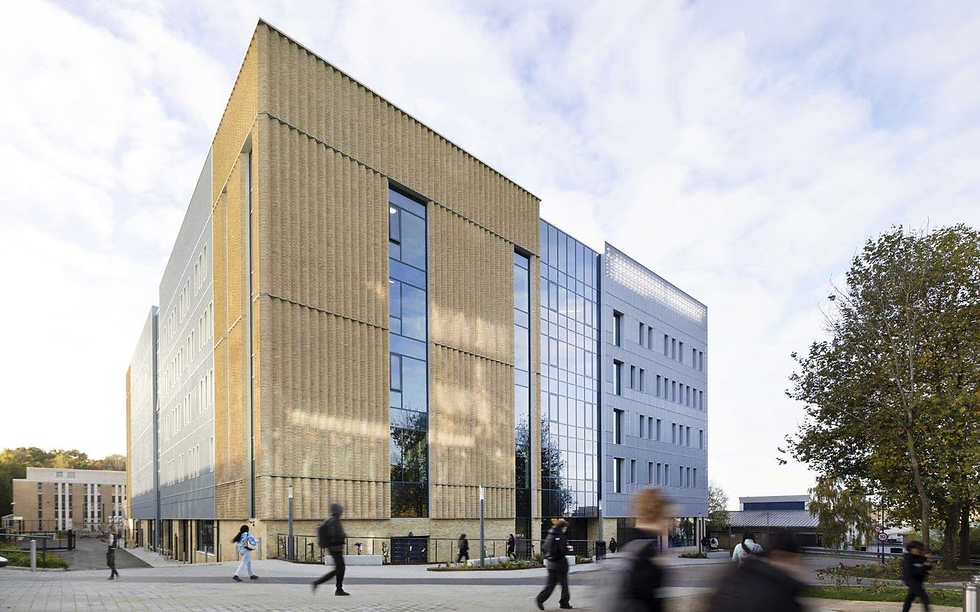Leader of the International Slavery Museum at our 'Cultural Cities' forum this March
- Heather Fearfield
- Feb 19
- 3 min read
Updated: Feb 20

Image: Michelle Charters, Leader of the International Slavery Museum, courtesy of National Museums Liverpool
Future Cities Forum is delighted that the Leader of the International Slavery Museum in Liverpool, Michelle Charters, OBE, will be taking part in our 'Cultural Cities' discussion event next month.
The forum will look at the funding for new museums and gallery extension design, programme/immersion activities to draw in new audiences and the role of landscape design around cultural centres.
Community activist Michelle Charters is the first Black Woman to lead the International Slavery Museum - the only national museum in the world dedicated to the history of the transatlantic slave trade and its legacies.
Liverpool-born Michelle is navigating the International Slavery Museum through a ground-breaking £28m transformation, from a gallery space into a prominent museum, with the ambition to become the world leader in understanding and exploring the impact and legacies of historic and modern slavery, and how it still influences the world today.
Michelle features on the museum’s Black Achievers Wall alongside such greats as Martin Luther King, Kofi Annan and Muhammad Ali, for her activism work, which dates back to 1979. For the last 17 years she has worked tirelessly as CEO of Kuumba Imani Millennium Centre in Toxteth, Liverpool.
The multi-purpose centre was the vision of the Liverpool Black Sisters, an organisation formed in the 1970s to address the many forms of discrimination experienced by the Black community. She is the Founding Chair of the Merseyside Black History Month Group and first Black woman to be appointed a Trustee of the Everyman and Playhouse Theatres in Liverpool.
Michelle has been an advocate for National Museums Liverpool since she was first introduced to the Transatlantic Slavery Gallery at Maritime Museum by the late Dorothy Kuya in 1994. She is also a member of the RESPECT group, which was established in 2008 leading on from the Liverpool Slavery Remembrance Initiative Steering Group, and for the last five years, she has sat on National Museums Liverpool’s board as a trustee.
Michelle explains:
When I first stepped into what was known then as the Transatlantic Slavery Gallery nearly 30 years ago, I committed to be part of a movement to learn, interpret and share what we could about our ancestors’ pain and suffering. Ever since, I have used the anger and hurt that I felt when confronted by shackles and artefacts from Africa that had been stolen or purchased by slave merchants, to ensure that my ancestors, their journey and our opportunity to tell the story was never forgotten.
Throughout her career spanning more than 40 years, Michelle’s commitment has been to uncover and promote the truth of Black experiences, both historically and in the present, to find a way in which we could all learn, share and participate in a collective fight for justice.
Supported by The National Heritage Lottery Fund, the transformation of the International Slavery Museum and Maritime Museum, including the redevelopment of the Dr Martin Luther King Jnr building, is an opportunity to co-create welcoming and thought-provoking spaces for education, exhibitions, discussion, and research.
The redevelopment is part of the wider National Museums Liverpool Waterfront Transformation Project, which will link storytelling, heritage, community and hospitality to create a rich visitor experience and will be a catalyst for social and environmental improvements in the area.






Comments